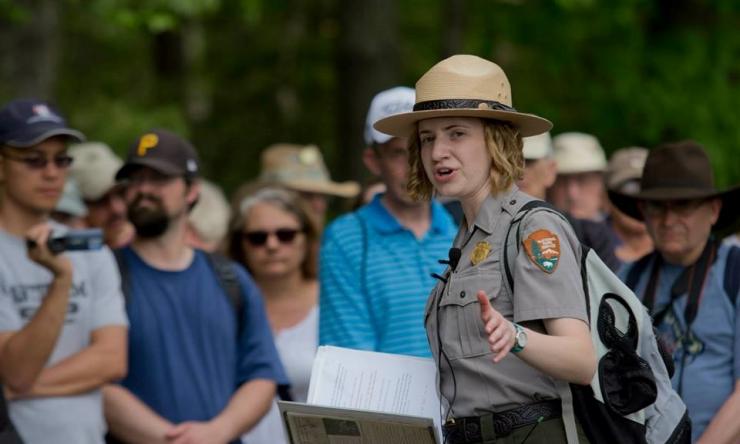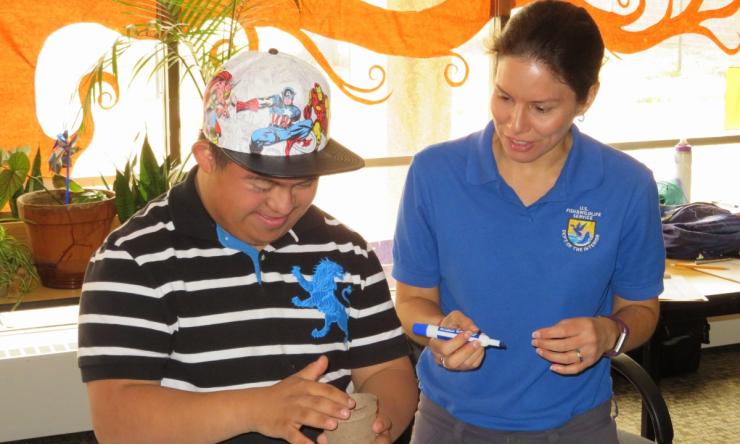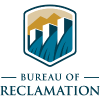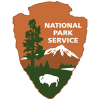Park Ranger
Position Overview
Park Rangers help visitors appreciate and enjoy the more than 189 million acres of public lands preserved, managed, and protected by DOI. From the Park Ranger who greets visitors at the gate to the Superintendent managing multiple large parks, all have an important role to play in making public lands inviting, inspiring, safe and accessible. Many Rangers plan and conduct engaging and interactive programs to educate visitors of all ages and backgrounds about historical, natural, or scientific treasures. Others focus on law enforcement and emergency services.
This position is represented at the following bureaus
Candidate Description
The ideal candidate will serve as a personable and well-informed ambassador for the Department of the Interior. Park Rangers see working with diverse people as a pleasure. Learning about and protecting historical buildings, archeological treasures, natural resources, plants, people and animals is a passion. Park Rangers have a visible and tangible desire to protect and promote our national parks and our natural and cultural history. Park Rangers excel at fostering curiosity and providing educational opportunities for all park visitors. Some positions may require firearms proficiency, motor vehicle licensing, or the ability to operate watercraft.
Specialty Areas
- Interpretation
- Visitor Protection and Services
Resource Management
Work Environment
Rangers can work in an amazing range and variety of environments from urban historical sites to remote mountain posts. Being a Park Ranger means bringing your passion for America’s public lands to every sort of environment. Many locations involve significant time outdoors in remote, rugged areas, while others manage quiet farms or scenic parkways. A career as a Park Ranger truly has something for everyone.
Minimum Education Requirements
Please see the Individual Occupation Requirements on the OPM website.
Career Level Requirements
Responsibilities by Level
Entry:
- Answering visitor questions and providing information
- Conducting interpretive talks and/or tours
- Presenting educational and interpretive programming
- Performing patrols to check conditions at various areas
- Gathering visitor use data
Mid:
- Developing and implementing interpretive, educational, safety or visitor use plans
- Serving as work leader coordinating student or other volunteer projects
- Issuing and managing permits
Journey:
- Planning, directing and evaluating complex interpretive, educational, preservation, interpretation or safety programs
- Supervising lower level rangers
Senior:
- Serving as a Superintendent or Visitor Services Manager
- Overseeing all operations in one or more parks or refuges
- Managing a regional level program office
Strengths by Level
-
AccountabilityHolds self and others accountable for measurable high-quality, timely, and cost-effective results. Determines objectives, sets priorities, and delegates work. Accepts responsibility for mistakes. Complies with established control systems and rules.Show Tool TipEntry 3-7Mid 8-11Journey 12-13Senior 14-15
-
Attention to DetailIs thorough when performing work and conscientious about attending to detail.Show Tool TipEntry 3-7Mid 8-11Journey 12-13Senior 14-15
-
Customer ServiceWorks with clients and customers (that is, any individuals who use or receive the services or products that your work unit produces, including the general public, individuals who work in the agency, other agencies, or organizations outside the Government) to assess their needs, provide information or assistance, resolve their problems, or satisfy their expectations; knows about available products and services; is committed to providing quality products and services.Show Tool TipEntry 3-7Mid 8-11Journey 12-13Senior 14-15
-
Decision MakingMakes sound, well-informed, and objective decisions; perceives the impact and implications of decisions; commits to action, even in uncertain situations, to accomplish organizational goals; causes change.Show Tool TipEntry 3-7Mid 8-11Journey 12-13Senior 14-15
-
Influencing/NegotiatingPersuades others to accept recommendations, cooperate, or change their behavior; works with others towards an agreement; negotiates to find mutually acceptable solutions.Show Tool TipEntry 3-7Mid 8-11Journey 12-13Senior 14-15
-
Interpersonal SkillsTreats others with courtesy, sensitivity, and respect. Considers and responds appropriately to the needs and feelings of different people in different situations.Show Tool TipEntry 3-7Mid 8-11Journey 12-13Senior 14-15
-
Oral CommunicationExpresses information (for example, ideas or facts) to individuals or groups effectively, taking into account the audience and nature of the information (for example, technical, sensitive, controversial); makes clear and convincing oral presentations; listens to others, attends to nonverbal cues, and responds appropriately.Show Tool TipEntry 3-7Mid 8-11Journey 12-13Senior 14-15
-
Organizational AwarenessKnows the organization's mission and functions, and how its social, political, and technological systems work and operates effectively within them; this includes the programs, policies, procedures, rules, and regulations of the organization.Show Tool TipEntry 3-7Mid 8-11Journey 12-13Senior 14-15
-
Problem SolvingIdentifies problems; determines accuracy and relevance of information; uses sound judgment to generate and evaluate alternatives, and to make recommendations.Show Tool TipEntry 3-7Mid 8-11Journey 12-13Senior 14-15
-
Teaching OthersHelps others learn through formal or informal methods; identifies training needs; provides constructive feedback; coaches others on how to perform tasks; acts as a mentor.Show Tool TipEntry 3-7Mid 8-11Journey 12-13Senior 14-15
-
TeamworkEncourages and facilitates cooperation, pride, trust, and group identity; fosters commitment and team spirit; works with others to achieve goals.Show Tool TipEntry 3-7Mid 8-11Journey 12-13Senior 14-15
-
Technical CompetenceUses knowledge that is acquired through formal training or extensive on-the-job experience to perform one's job; works with, understands, and evaluates technical information related to the job; advises others on technical issues.Show Tool TipEntry 3-7Mid 8-11Journey 12-13Senior 14-15
-
WritingRecognizes or uses correct English grammar, punctuation, and spelling; communicates information (for example, facts, ideas, or messages) in a succinct and organized manner; produces written information, which may include technical material, that is appropriate for the intended audience.Show Tool TipEntry 3-7Mid 8-11Journey 12-13Senior 14-15
Common Pathways
Candidates who made this career change most commonly held these occupations...
Guide

Miscellaneous Clerk and Assistant

Program Management

- 0007 - Correctional Officer
- 0018 - Safety and Occupational Health Management
- 0020 - Community Planning
- 0028 - Environmental Protection Specialist
- 0080 - Security Administration
- 0081 - Fire Protection And Prevention
- 0083 - Police
- 0085 - Security Guard
- 0099 - General Student Trainee
- 0101 - Social Science
- 0150 - Geography
- 0170 - History
- 0188 - Recreation Specialist
- 0189 - Recreation Aid And Assistant
- 0190 - General Anthropology
- 0193 - Archaeology
- 0201 - Human Resources Management
- 0203 - Human Resources Assistance
- 0318 - Secretary
- 0326 - Office Automation Clerical And Assist
- 0343 - Management and Program Analysis
- 0404 - Biological Science Technician
- 0408 - Ecology
- 0430 - Botany
- 0455 - Range Technician
- 0462 - Forestry Technician
- 0482 - Fish Biology
- 0485 - Wildlife Refuge Management
- 0486 - Wildlife Biology
- 0560 - Budget Analysis
- 0561 - Budget Clerical And Assistance
- 0801 - General Engineering
- 0807 - Landscape Architecture
- 0808 - Architecture
- 0810 - Civil Engineering
- 0830 - Mechanical Engineering
- 0962 - Contact Representative
- 0986 - Legal Assistance
- 1001 - General Arts And Information
- 1010 - Exhibits Specialist
- 1015 - Museum Curator
- 1016 - Museum Specialist and Technician
- 1035 - Public Affairs
- 1071 - Audiovisual Production
- 1082 - Writing And Editing
- 1084 - Visual Information
- 1101 - General Business and Industry
- 1109 - Grants Management
- 1170 - Realty
- 1301 - General Physical Science
- 1315 - Hydrology
- 1316 - Hydrologic Technician
- 1370 - Cartography
- 1420 - Archivist
- 1601 - Equipment, Facilities, and Services
- 1720 - Education Program
- 1750 - Instructional Systems
- 1801 - General Inspection, Investigation, Enforcement, and Compliance
- 1802 - Compliance Inspection And Support
- 2005 - Supply Clerical and Technician
- 2101 - Transportation Specialist
- 2151 - Dispatching
- 2181 - Aircraft Operation
- 2210 - Information Technology Management
- 4749 - Maintenance Mechanic
- 5786 - Small Craft Operating




